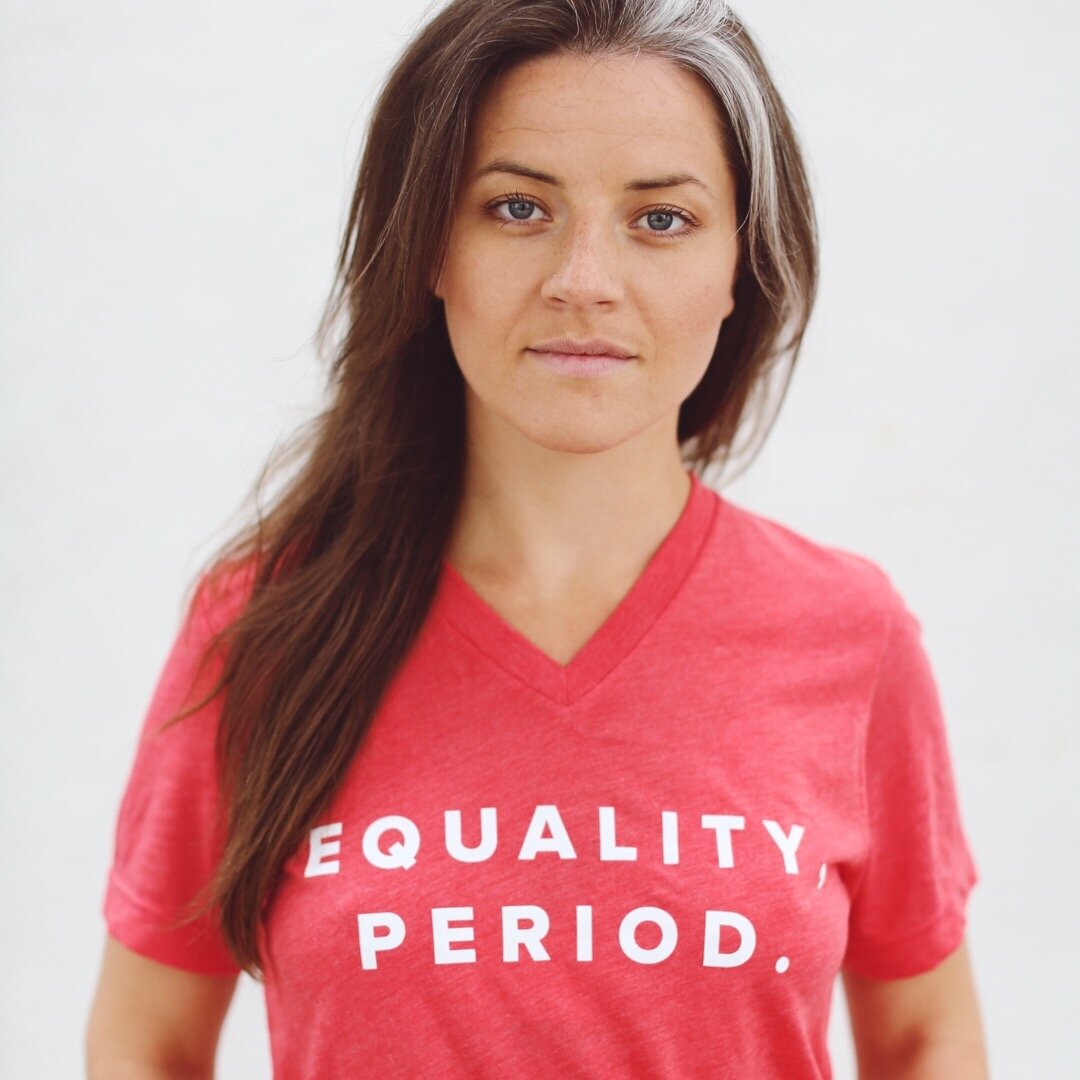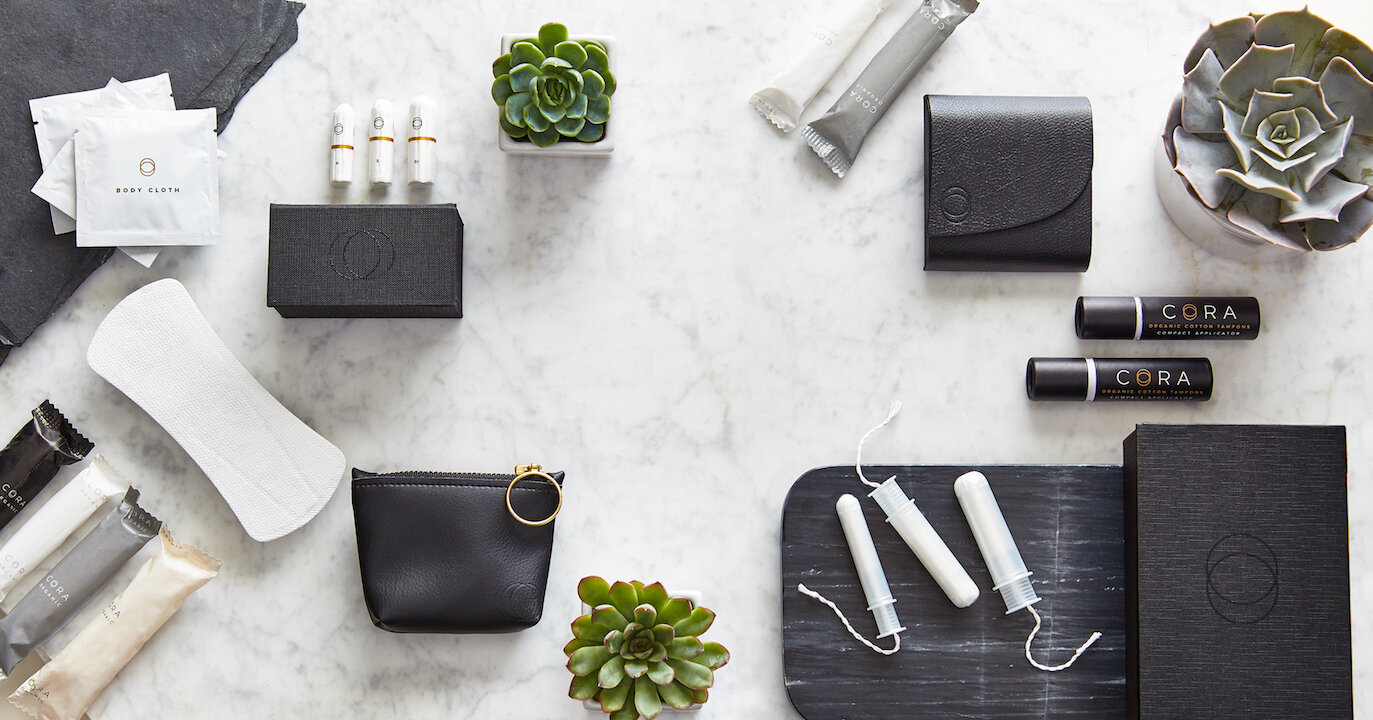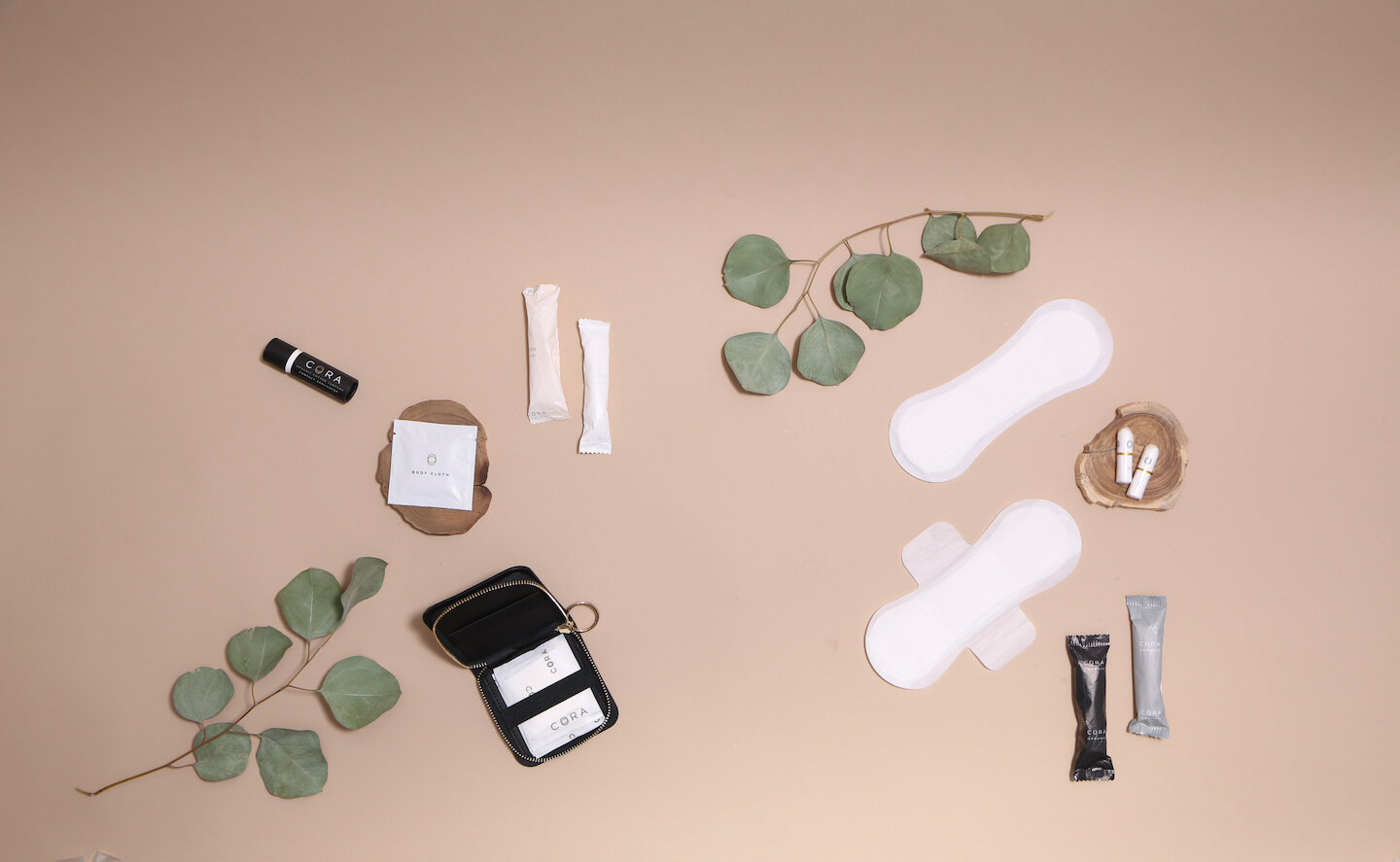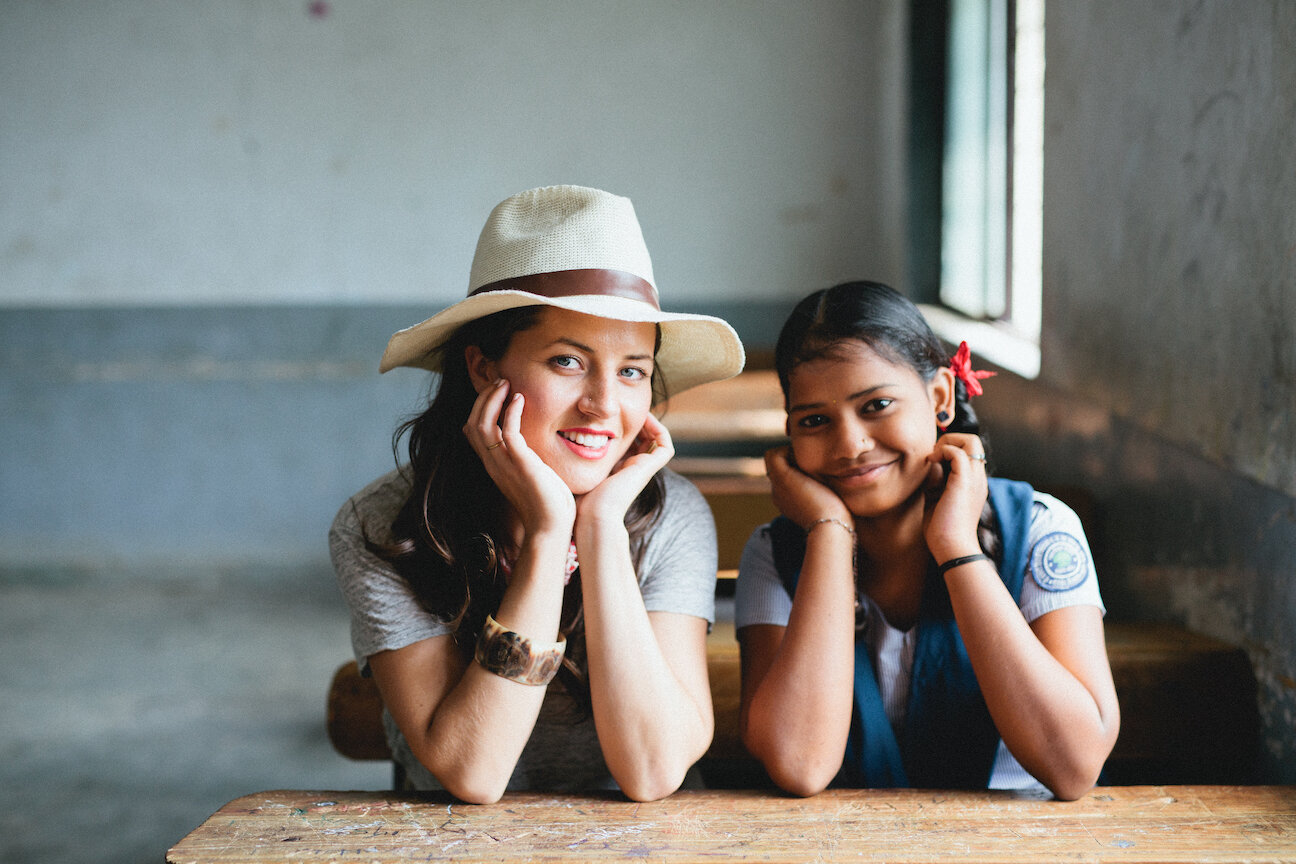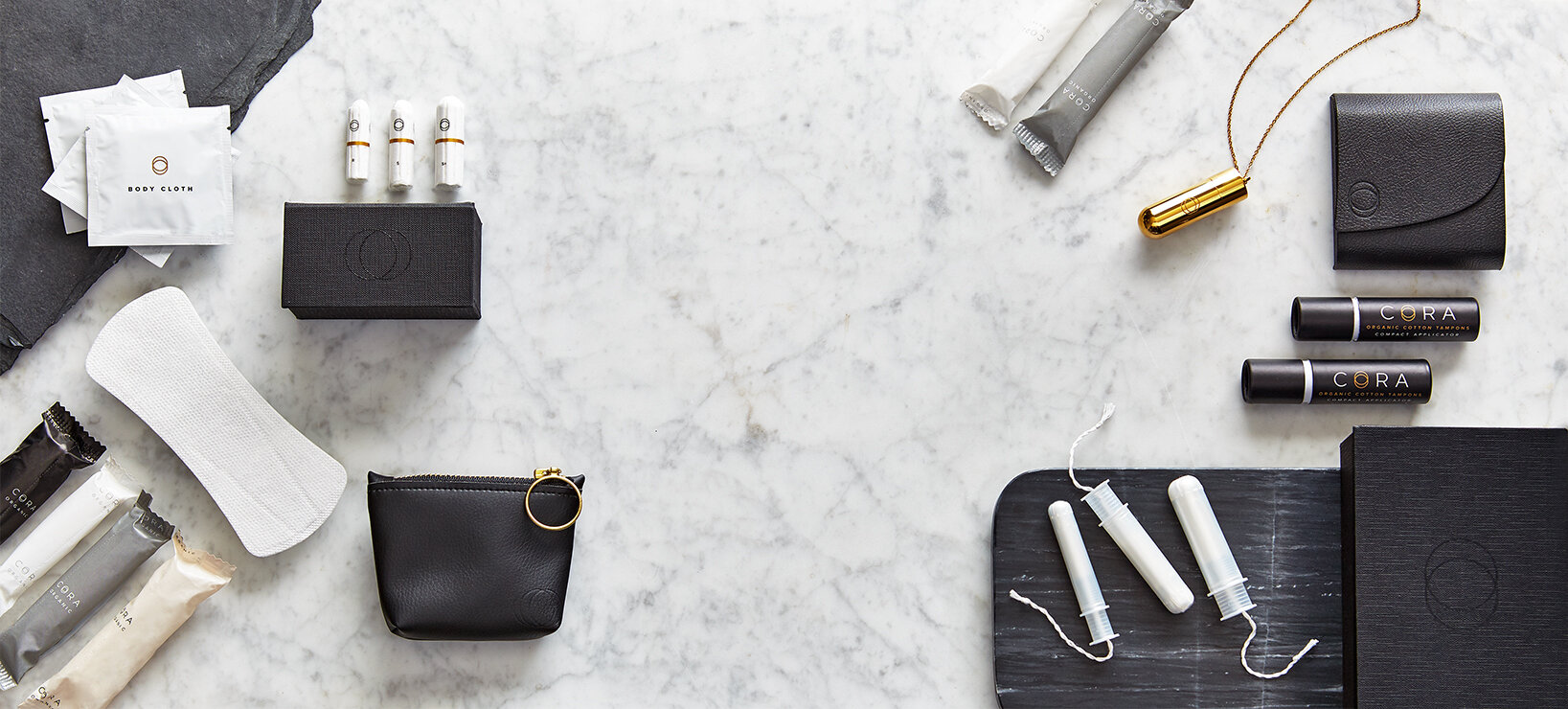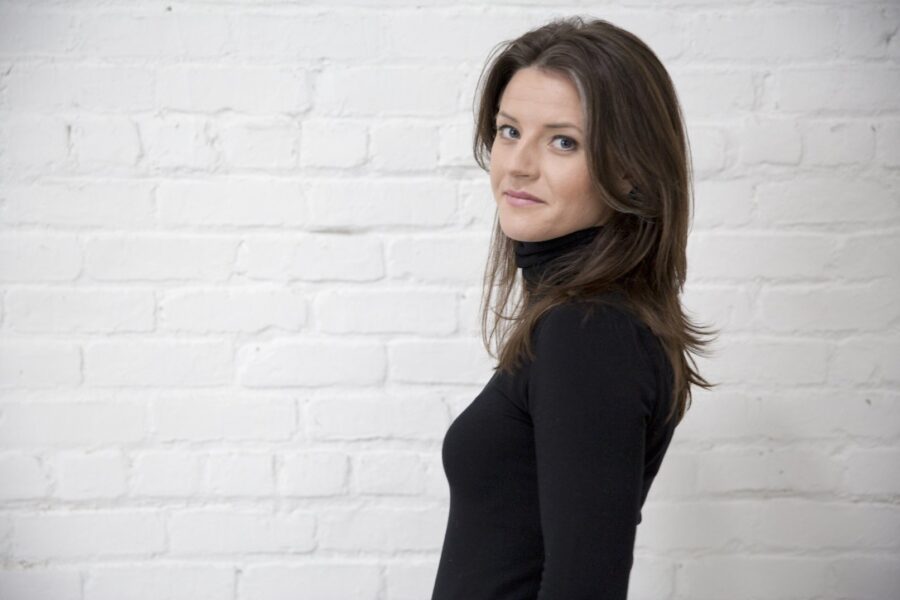
Ending Period Poverty: Interview With Molly Hayward, Founder Of Cora
Meet Molly Hayward, Founder Of Cora
Before menstrual management was a trendy space, one young entrepreneur was working on a subscription model to offer clean and quality menstrual products. Molly Hayward founded Cora, a lifestyle brand offering people a modern method for managing their periods while providing sustainable menstrual products in developing countries. We connected with Molly to hear more about her stroke of inspiration in rural Kenya, the dirty side of the industry, and the innovative ways Cora is delivering on its commitment to end period poverty.
Your career was grounded in social justice before you became an entrepreneur. We’d love to hear your story and how you settled on social entrepreneurship as a means to create an impact.
A few years ago, I was working in Kenya and met a young girl named Purity. She told me about how she and other girls in her village didn’t go to school when they had their periods because they didn’t have access to pads. They resorted to using sand, dirty rags, and whatever they could find to get by. After hearing Purity’s story, I began to look deeper into this issue and was shocked by how common period poverty is for women around the world. It also made me take a hard look into how my own period experience was broken—the stigma and shame that girls like Purity felt was all too prevalent in my own life and the lives of my friends as well. While we were lucky to have access to products, we still hid our tampons up our sleeves when walking to the bathroom and whispered about our periods. I knew there had to be a better way.
“I began to look deeper into this issue and was shocked by how common period poverty is for women around the world. It also made me take a hard look into how my own period experience was broken.”
When I started Cora, a lifestyle brand that provides women with modern solutions to manage their periods, I thought about Purity and decided that social impact needed to be a core focus of our business model. Cora is a certified B-Corporation and for each month’s supply of Cora products purchased, we provide a month’s supply of pads to a girl in need. With the help of our incredible impact partners, Aakar Innovations and ZanaAfrica, we’ve donated 1,000,000 pads to women and girls around the world. We’ve also partnered with The Mile High Workshop, a job training program in the U.S. for women transitioning out of homelessness, incarceration and addiction. All Cora products are packaged and shipped by the inspiring women in the program who are working to rebuild their lives.
Cora produces a clean and organic product that can be trusted month after month. Talk to us about the dirty side of the tampon industry. From production materials to the tampon tax, what do you want everyone to know?
Tampon companies aren’t currently required to disclose their ingredients and the products often contain harmful materials such as bleach, rayon and synthetics. They’re mostly made out of conventional cotton—the dirtiest crop in the world. The pesticides and insecticides applied to conventional cotton contaminate water systems and soil, poison animals, destroy ecosystems and put our health at risk. We believe that what you put in your body matters, which is why our products only include 100% certified organic cotton. Choosing products with responsible ingredients are both better for your body and for the environment.
“As a sign of protest against this unjust and sexist [luxury tax on tampons], Cora pays the sales tax on all products sold through our website for all of our customers, because we believe you shouldn’t have to.”
In terms of the tampon tax, in the majority of U.S. states, menstrual products continue to be taxed as a luxury, further perpetuating economic inequality between men and women. As a sign of protest against this unjust and sexist tax, Cora pays the sales tax on all products sold through our website for all of our customers, because we believe you shouldn’t have to.
From the tampon tax to the unsafe ingredients in our period products, I want women to know that they don’t have to settle and that we can rise up together against these inequities. I truly believe there is a better path forward.
As you mentioned, menstruation is still deeply stigmatized all over the world. People in low income countries too often endure the greatest social burden. How has the stigma associated with your product line challenged Cora’s growth? How have you overcome it?
While the taboos around periods are a serious social burden around the world, I think that women have actually been waiting for a brand like Cora that is celebrating bodies by breaking down barriers and providing modern options for managing their periods. They’ve been waiting for Cora, a brand that understands them and is also sophisticated and accessible.
While more people than ever are openly talking about their periods, the products on the market that support this wave of change are few—the menstrual hygiene space hasn’t seen true innovation in decades. In the U.S., the menstrual care industry is worth nearly $5 billion, and has been dominated by three major brands since the mid-20th century. Those brands have offered women unhealthy synthetic menstrual products that evoke feelings of shame and stigma.
Because Cora is different and has re-imagined the period experience, we’ve received a tremendous response and positioned ourself to raise growth capital very intentionally.
Female empowerment stands at the very core of your brand. Cora products are produced by people in India who are paid living wages—what impact does this have on their lives? What impact does female empowerment have as a means for alleviating poverty?
I actually had the privilege of spending some time in India this January with our impact partner Aakar Innovations, a hybrid social enterprise that enables women to produce and distribute affordable, high quality and sustainable pads within their community. I saw firsthand how the economic success of these women impacted the community at large, particularly the young girls who talked about what they wanted to be when they grew up because they were seeing women in their community with careers.
“When girls have access to menstrual supplies, the school dropout rate decreases by 90%. Investing in our girls and their education is one of the smartest decisions we can make and a real step towards alleviating poverty.”
Female empowerment is absolutely critical in order to alleviate poverty and we believe that starts with education. Girls are half of the potential workforce and deserve the same educational opportunities as the boys in their communities. It’s why we’ve placed such an emphasis on ensuring that girls have access to period products because menstruation is a barrier to education for so many girls. In India, one in four girls drop out of school once she reaches puberty because 70% of Indian girls and women cannot afford menstrual supplies. Remarkably, when girls have access to menstrual supplies, the school dropout rate decreases by 90%. Investing in our girls and their education is one of the smartest decisions we can make and a real step towards alleviating poverty
We’d love to hear your honest thoughts on the one-for-one model. How has this model grown the social impact industry, in what ways should consumers be cautious, and do you think the growth that it’s afforded the industry can be sustained?
The one-for-one model has become popular because it provides customers with a tangible understanding of the impact that their purchase makes. Many of our customers tell us that they’ve chosen Cora because of this commitment. We’re seeing more and more that customers want their purchases to mean something and that they’re choosing companies with strong ethos tied to their missions.
“We’re seeing more and more that customers want their purchases to mean something and that they’re choosing companies with strong ethos tied to their missions.”
We’re incredibly proud of our social impact model and have structured our one-for-one model in a way that supports local industry and entrepreneurs while giving back. When we designed our model we wanted to be sure that we wouldn’t inadvertently be taking away economic growth from a community, which is why we invest in local organizations that provide jobs to local people rather than sending Cora products to other countries.
Consumers should be cautious of social impact models in which a company gives away the product that they themselves make as they actually can undermine local industry. While the intention to provide goods is commendable, it’s much more effective to think about the long-term local investment that you can make as a company to ensure economic growth and opportunity while providing the products that they need.
The monthly demand for your product aligns perfectly with the subscription business model. What other trends have you noticed among your conscious customer base and where is the menstrual industry headed?
We’ve recently expanded our line of products to include applicator-free tampons, period liners and body cloths because our customers are looking for options when it comes to period care. All of our bodies are different and so are our needs. I think that the menstrual care industry is finally starting to wake up and notice that one size does not, in fact, fit all and that people want products that are better for them and better for the environment.
Leading this particular business surely makes you acutely aware of your own habits and what you’re putting in your body. What adjustments have you made to your daily routine and preferred product list in order to be more healthy?
Well first of all, I myself use Cora products because I believe that we should be just as conscious about what we put in our bodies as we are about what we eat. I’ve also made strides in taking better care of my mental health and wellness—working in the female health space has shown me how important it is to prioritize both your physical and mental wellbeing. I travel frequently and work long hours, so I prioritize having full days on the weekends without technology, and where my primary priorities are self care, rest and time in nature.
I’m a complete minimalist when it comes to products, but a few I love are:
Drunk Elephant Babo Moisturizer
Instagram
Facebook
Twitter
Header image by Tasha Van Zandt
RELATED READING
Kassia Binkowski is a Contributing Editor at The Good Trade and the Founder of One K Creative. She grew up in Madison, WI and traveled her way around the world to Boulder, CO which she now calls home. Nestled against the Rocky Mountains, Kassia supports innovative organizations from Colorado to Kathmandu tell their stories of social change through writing, photography, and design. Kassia is an eternal optimist and forever a backroad wanderer.
